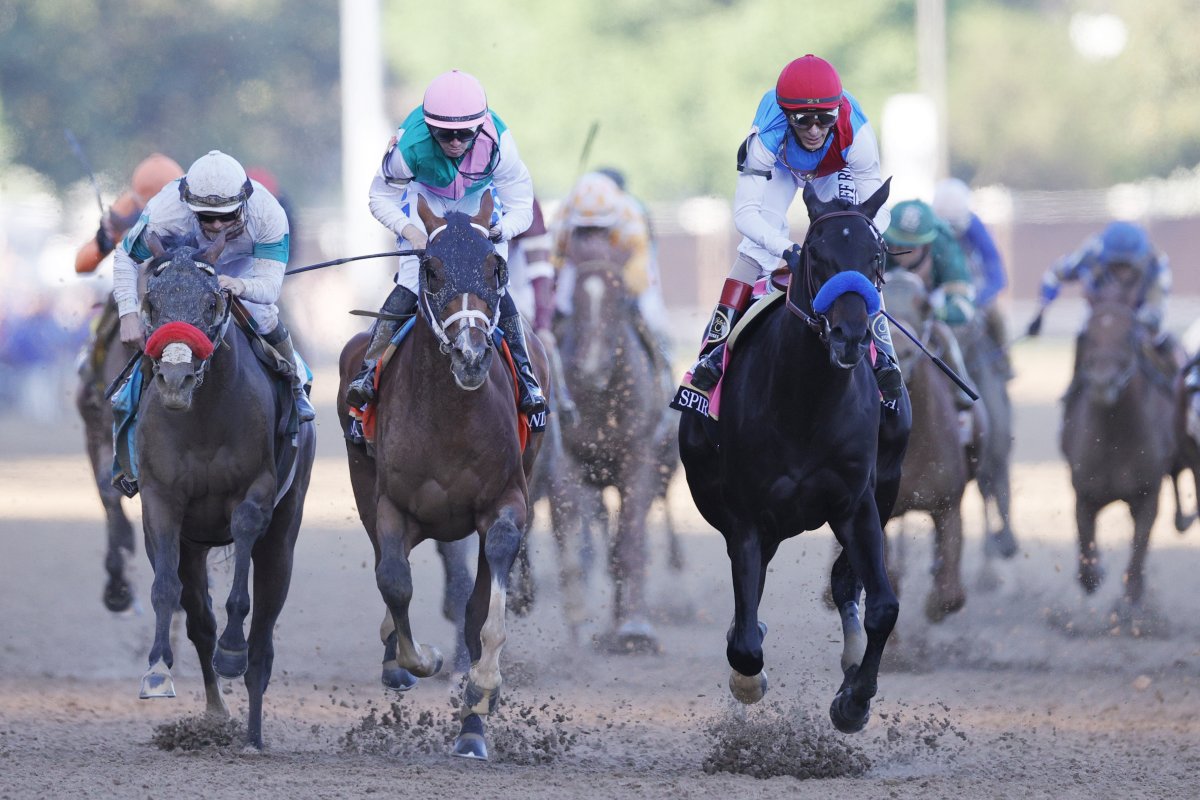Kentucky Derby winner Medina Spirit tested positive for betamethasone, the horse's trainer Bob Baffert confirmed on Sunday.
Post-race tests identified 21 picograms per milliliter of plasma in the horse's system. A picogram is one-trillionth of a gram.
But what is betamethasone and how is it used in horses?
Betamethasone is an anti-inflammatory steroid that, in humans, is used to treat a number of diseases, including some rheumatic disorders—those affecting the joints, tendons, ligaments, bones, and muscles—some skin diseases, allergies, Crohn's disease and cancers, among others.
In horse racing, Betamethasone is an accepted and commonly used medication. Injection of the drug into joints can provide relief from discomfort for horses by decreasing inflammation, although some evidence exists to suggest that the substance can mask injuries that would otherwise prevent an animal from racing, placing it in danger of further damage, according to Kentucky Equine Research.
The Kentucky Horse Racing Commission classifies betamethasone as a Class C drug. While the substance is an accepted drug, its use is restricted somewhat in that regulations call for a withdrawal time of 14 days before a race.
Baffert said Sunday that Medina Spirit had not been administered betamethasone.
"All I can tell you is that betamethasone—even though it is an allowed drug, a therapeutic medication, we did not give it," Baffert said.
"Yesterday, I got the biggest gut punch in racing for something that I didn't do," Baffert said. "[It's an] injustice to the horse. I don't feel embarrassed, I feel like I was wronged. But I'm going to fight it."
Penalty recommendations for a trainer committing a first offence for the use of betamethasone is a fine of at least $1,000, Blood Horse reported. A second offense within a year can incur a fine of $1,500 fine and a 15-day suspension.
For horse owners, a first betamethasone offense can lead to disqualification and loss of purse, in addition to requirements that the horse pass an exam before being allowed to compete again. A second offense for owners can lead to disqualification, loss of purse and a requirement that the horse be placed on the veterinarian's list for 45 days.
If the ruling is upheld, Medina Spirit could become only the second horse in the history of the Kentucky Derby to be disqualified for testing positive for a banned substance.
"It is our understanding that Kentucky Derby winner Medina Spirit's post-race blood sample indicated a violation of the Commonwealth of Kentucky's equine medication protocols," Churchill Downs racetrack, where the Kentucky Derby took place, said in a statement.
"The connections of Medina Spirit have the right to request a test of a split sample and we understand they intend to do so. To be clear, if the findings are upheld, Medina Spirit's results in the Kentucky Derby will be invalidated and Mandaloun will be declared the winner."

Uncommon Knowledge
Newsweek is committed to challenging conventional wisdom and finding connections in the search for common ground.
Newsweek is committed to challenging conventional wisdom and finding connections in the search for common ground.
About the writer
Aristos is a Newsweek science reporter with the London, U.K., bureau. He reports on science and health topics, including; animal, ... Read more
To read how Newsweek uses AI as a newsroom tool, Click here.






